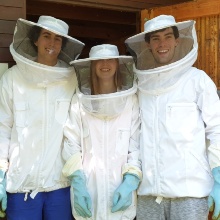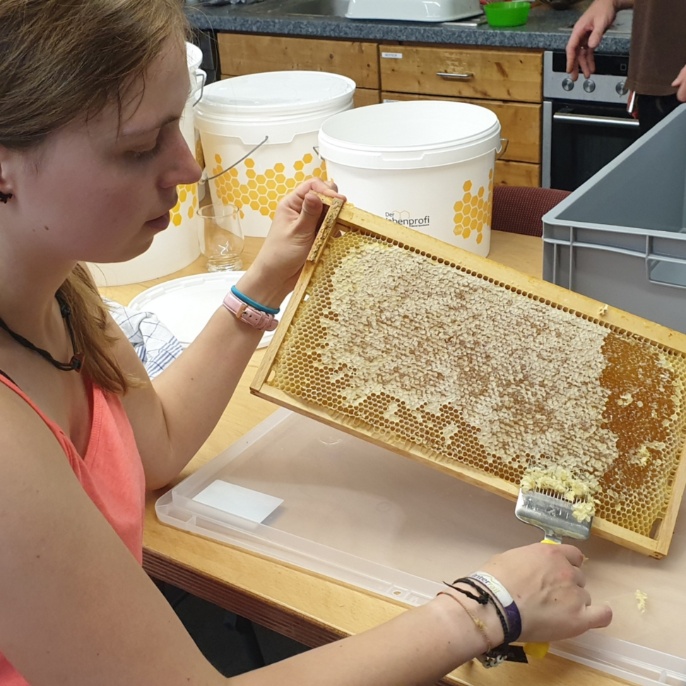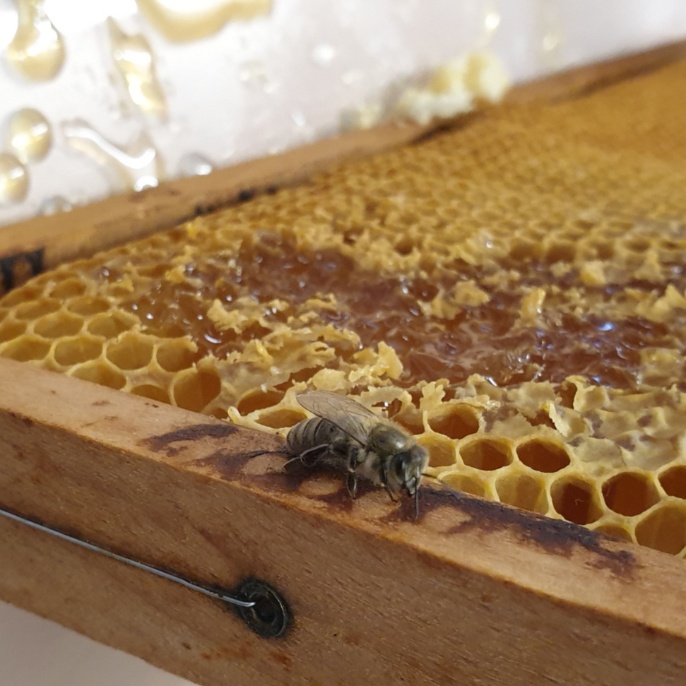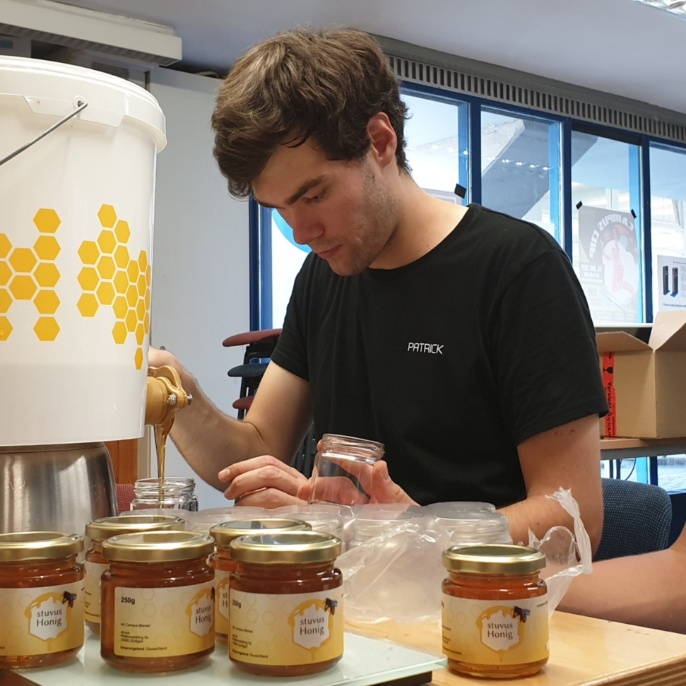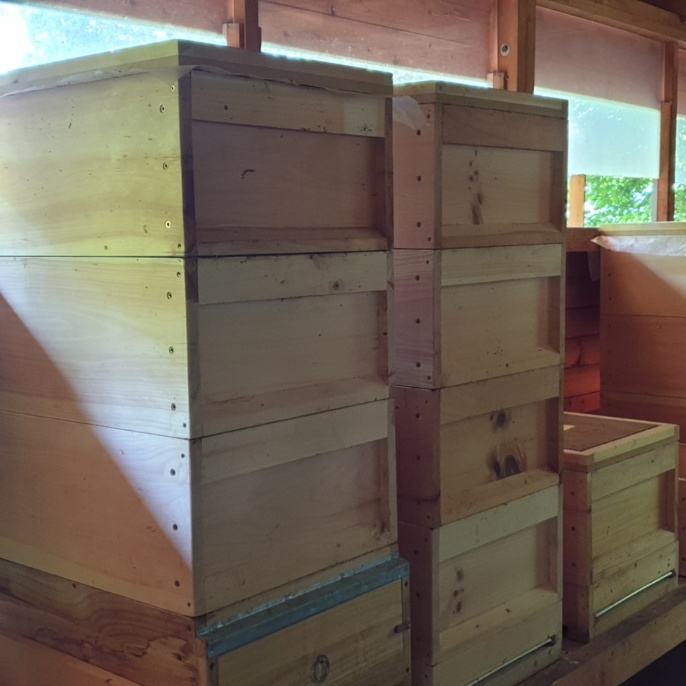There is a buzzing sound as hundreds of bees fly into the hives and crawl out again. In the apiary at the edge of the forest on the Vaihingen campus there are four hives, which the Campus Bees Workgroup takes care of all year round. The honey harvest is due in summer. It is the annual highlight for the approximately ten active members of the working group, which belongs to the stuvus students council.
One of them is Patrick Martin. He is a SimTech student at the University of Stuttgart and has been a member of the working group for about two years. Carefully he lifts the lid of the first hive. In it, the bees are crawling wildly over the honeycombs. With slow movements, Martin takes the first comb out of the hive, shakes off the many bees and takes a closer look at it. “As soon as most of the honeycomb is covered with a wax cap, it’s suitable for harvesting,” the 24-year-old explains.
What he likes about beekeeping is that it takes place outdoors and that it encourages the “slow living” lifestyle: “Working with bees is a great compensation for a stressful everyday life.” Besides, to him it is important to preserve and maintain bee colonies. The members of the Campus Bees Workgroup meet about once a week and regularly check the bees. “We check to see if the colonies are growing well and are healthy, and whether we need to feed them sugar water, for example.“
Bees defend themselves only in case of need
The deeper we get into the hive, the more restless the bees become. And after a short time, they fly wildly around the entire apiary, crawling over our fingers and hair. But they are not aggressive animals, they defend themselves with their sting only in an emergency. Which happens when a bee accidentally gets caught between Martin's finger and the honeycomb. A fellow student skillfully pulls the sting out of Martin's wound. Now it's time to continue working with gloves: “The other bees would smell the released pheromones and be attracted to them.“
The students find it important to handle the bee products with care and use them sparingly. Therefore, they let scraps of old wax melt in the sun and collect the melted wax in a container for re-use. “We can make candles or oilcloths that we then sell,” says Martin.
Hard-working bees: 54 kilos of honey harvested
After about an hour, all the honeycombs are collected and we take them to the rooms of stuvus on the Vaihingen campus. There we open the wax capping on the honeycomb with a large fork, so that in the extractor the honey can flow out. Beekeepers call this process “uncapping“. Immediately the sticky honey flows over our fingers and it smells of beeswax. The uncapped honeycombs are put into the prepared honey extractor and after a few seconds the honey flows from the extractor through a sieve into a large bucket. From there we fill it into jars, which are then labeled.
We get about 54 kilograms. “We are completely satisfied with this,” says the SimTech student. The honey is not yet officially on sale. The students often give it to the members of the students council, as a small thank-you gift for all the voluntary work they do. If you would like to purchase the honey of the campus bees, please send an email to the working group.
At the end of the day, the honey is stuck to tools, tables and fingers. To be prepared for the next harvest, the students remove the sticky substance from all devices — fortunately, honey is water-soluble.
The Campus Bees Workgroup is looking forward to welcoming other bee-enthusiast students. Regardless of the study program, everyone who is interested in participating can register via email.


